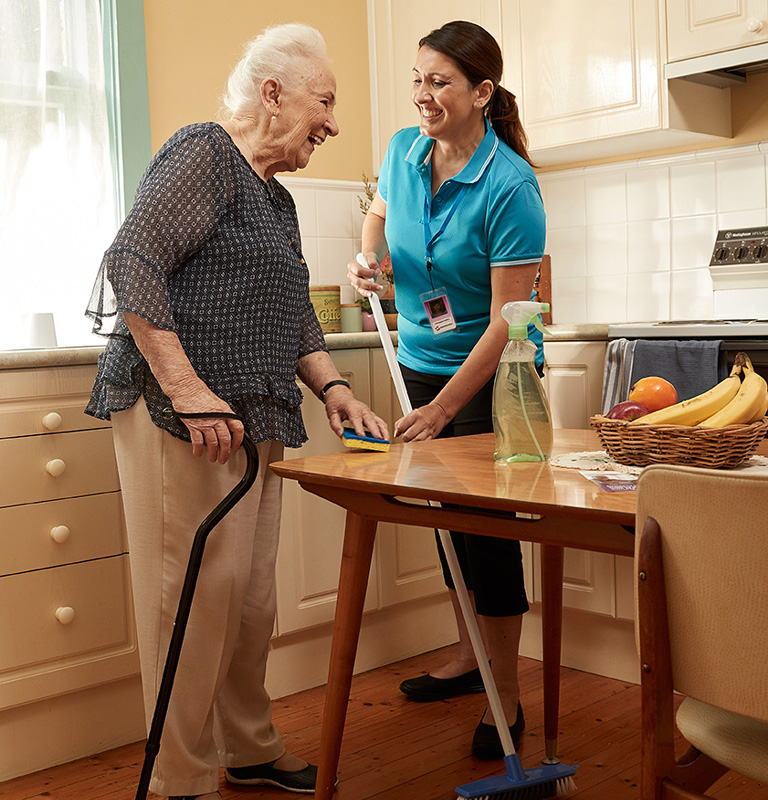
Homemaking is often framed as a set of practical tasks—cleaning, cooking, organizing, maintaining a household. But for older adults, homemaking is far more than a checklist of chores. It represents stability, personal agency, and an emotional anchor that helps sustain mental, physical, and social well-being.
Modern geriatric care increasingly recognizes that maintaining familiar environments and daily routines plays a pivotal role in preserving quality of life. Beyond meeting physical needs, homemaking creates a foundation for dignity, belonging, and emotional balance—particularly for seniors choosing to age in place.
The Emotional Weight of Familiar Spaces
A home is more than a structure. It embodies a lifetime of memories, personal history, and identity. For older adults, the ability to remain in their own environment—surrounded by familiar objects, routines, and personal choices—can significantly reduce feelings of anxiety and disorientation.
Maintaining this sense of place supports emotional regulation, especially for individuals living with chronic conditions or cognitive decline. Structured homemaking activities such as light housekeeping, meal preparation, and daily organization reinforce continuity and stability, which in turn protect mental health and self-esteem.
Preserving Independence Through Daily Participation
One of the most powerful benefits of homemaking services in elder care is the preservation of autonomy. Engaging seniors in household activities—whether that means folding laundry, preparing a favorite dish, watering plants, or simply choosing how their environment is arranged—reinforces a sense of control over their daily lives.
Research in geriatric and rehabilitation care shows that this engagement improves mood, lowers stress levels, and strengthens cognitive function. Small daily choices build confidence and help maintain executive functioning, delaying the decline associated with dependency.
The Link Between Homemaking and Cognitive Health
Familiar tasks serve as cognitive anchors. Routines like tidying up, organizing drawers, or setting the table stimulate neural pathways associated with memory, planning, and problem-solving. In dementia and cognitive care, these structured activities help reduce agitation, enhance orientation, and create predictable rhythms that minimize confusion.
Importantly, homemaking activities are adaptable to the individual’s abilities. This means even clients with significant physical or cognitive limitations can meaningfully participate in their environment, reinforcing identity and self-worth without creating undue stress or frustration.
Homemaking as a Social and Emotional Buffer
Social isolation is one of the most serious threats to senior health, contributing to depression, cognitive decline, and physical deterioration. Homemaking care often creates a natural environment for daily interaction and companionship.
A caregiver folding laundry alongside a client or sharing a meal preparation moment is doing more than providing a service—they’re facilitating human connection. These moments foster trust, ease loneliness, and help older adults maintain a sense of belonging.
For individuals with limited mobility or reduced community engagement, these interactions can make the difference between isolation and meaningful daily connection.
Physical Safety and Emotional Comfort in One Model
Homemaking also has direct implications for physical safety. A well-maintained home reduces fall risks, ensures better hygiene, and supports medication adherence through organized spaces. These practical measures allow older adults to remain in familiar environments longer, without compromising their health or safety.
What sets homemaking apart from other interventions is its dual benefit: it addresses physical and emotional well-being simultaneously. While housekeeping reduces hazards, the emotional reassurance of a stable home environment strengthens resilience and confidence.
An Interdisciplinary Priority in Elder Care
Across medical, rehabilitative, cognitive, and mental health disciplines, experts increasingly agree that homemaking should be recognized as a core component of geriatric care—not an afterthought.
Rehabilitation and physical therapy experts highlight its role in maintaining functional strength and mobility. Mental health specialists emphasize its protective effects against depression and anxiety. Dementia and palliative care models point to the way it sustains identity and emotional comfort at critical life stages.
Even public health and policy frameworks are shifting to support aging-in-place strategies that elevate homemaking to a central position in care planning.
Practical Implications for Families and Care Systems
For families, this means seeing homemaking not simply as a convenience but as a vital layer of holistic care. Regular, structured support in the home builds emotional resilience, protects independence, and delays or prevents institutionalization.
For caregivers, homemaking offers a natural framework for building trust, fostering emotional connection, and personalizing support. For health systems, investing in homemaking services contributes to lower hospitalization rates, reduced healthcare costs, and better quality of life metrics.
Conclusion: Homemaking as a Pillar of Dignified Aging
Homemaking is not a luxury—it is a powerful, evidence-backed tool for supporting the emotional and cognitive well-being of older adults. When woven into daily care, it strengthens independence, reinforces identity, and creates a protective buffer against isolation and decline.
At Loving Angels Home Care, we view homemaking not as a secondary service but as a core pillar of dignified, holistic elder care. By integrating emotional support with practical assistance, we help our clients live in homes that are not just clean and safe—but filled with meaning, stability, and a sense of self.
Schedule a Free Consultation to learn how our homemaking services can support your loved one’s emotional well-being and independence.






Leave a Reply